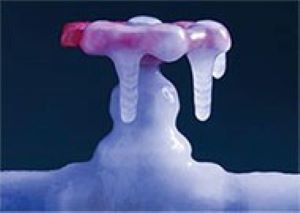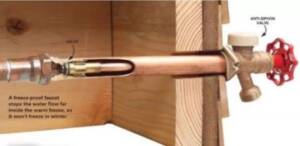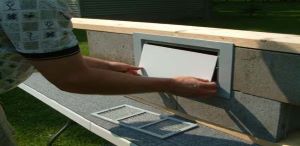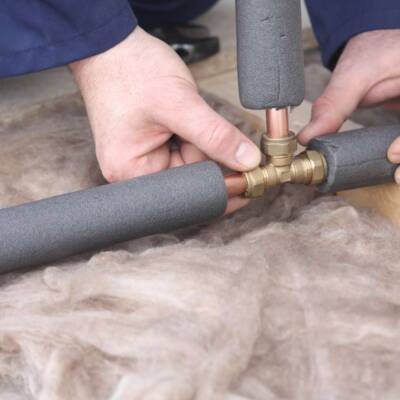How to Winterize your Home?
Each winter, many homeowners face the expense and inconvenience of frozen water pipes. We advise our customers to have irrigation systems turned off and winterized by Halloween. Because lawns will be going dormant as the weather turns from fall to winter, this is a good date to remember as a guide. Monitor the weather and specifically freezing temperatures to be sure you winterize to protect your pipes.
Why is Pipe Freezing a Problem?
Water expands as it freezes. This expansion puts tremendous pressure on whatever is containing it, including plastic and metal pipes. No matter the “strength” of a container, expanding water can cause pipes to break. Pipes that freeze most frequently are those exposed to severe cold, like outdoor hose bibs, swimming pool supply lines, water sprinkler lines and water supply pipes in in unheated interior areas like basements, and crawl spaces, attics, garages or kitchen cabinets. Also, pipes that run against exterior walls that have little or no insulation are subject to freezing.



Exterior Steps to Winterize and Protect your Home
Install a freeze-proof faucet. This may seem obvious, but we recommend for areas that experience excessive cold temperatures to install freeze-proof faucets to stop the water flow far inside the warm house, so it will not freeze.
Shut off and drain your irrigation system. Sometimes people assume that their landscaper or lawn maintenance company has done it for them. This task only takes a few minutes and can save you hundreds of dollars in repair costs and water bills.
Disconnect and drain outdoor hoses. Disconnecting hoses from their spigots allows water to drain from the pipe. Otherwise, the ice formed from a single, hard overnight freeze can burst either the pipe or the faucet. We have seen numerous instances where spigots lines froze over the winter and not until a customer notices a high bill in the summer (from hose use) is the broken pipe found.
If you have a swimming pool, drain water from pool and supply lines following the manufacturers or installer’s directions. Do not put antifreeze in these lines unless directed. Antifreeze is environmentally harmful, and is dangerous to humans, pets, wildlife, and landscaping.
Close foundation or exterior vents around the house during the cold months. This will help keep cold air out of crawl spaces.
Interior Steps to Winterize and Protect your Home
Insulate pipes or faucets in unheated areas. If you have water pipes in an unheated garage or crawl space under the house, wrap them before temperatures plummet. Hardware or building supply stores offer appropriate pipe wrapping materials.
Seal off access doors, air vents and cracks. Repair any broken basement windows. Cold winter winds whistling through overlooked openings can quickly freeze exposed water pipes. Avoid plugging air vents that your furnace or water heater needs for safe operation. Keep garage doors closed if there are water supply lines in the garage.
Know the location of your master water shutoff valve. In many homes it’s where the water line comes into your house from the street. Mark your meter box with a reflective marker. If a pipe bursts anywhere in the house — kitchen, bath, basement or crawl space — this valve turns off all water and will save your home from damage. Be sure everyone in the family knows where it is and what it does.
Open kitchen and bathroom cabinets to allow warmer air to circulate around the plumbing. Be sure to move any harmful cleaners and household chemicals up out of reach of children.
If you will be going away during cold weather, leave the heat on in your home, set to a temperature no lower than 55ºF.
In the event of a broken pipe, contact our emergency answering service is available 24-hours a day, seven days a week at 530-717-2500. A field technician will be dispatched to perform an emergency shut off of your water service. There is a cost of $25 during business hours and $50 after-hours. In addition, always have your plumber’s telephone number handy just in case there is a broken or frozen pipe.


